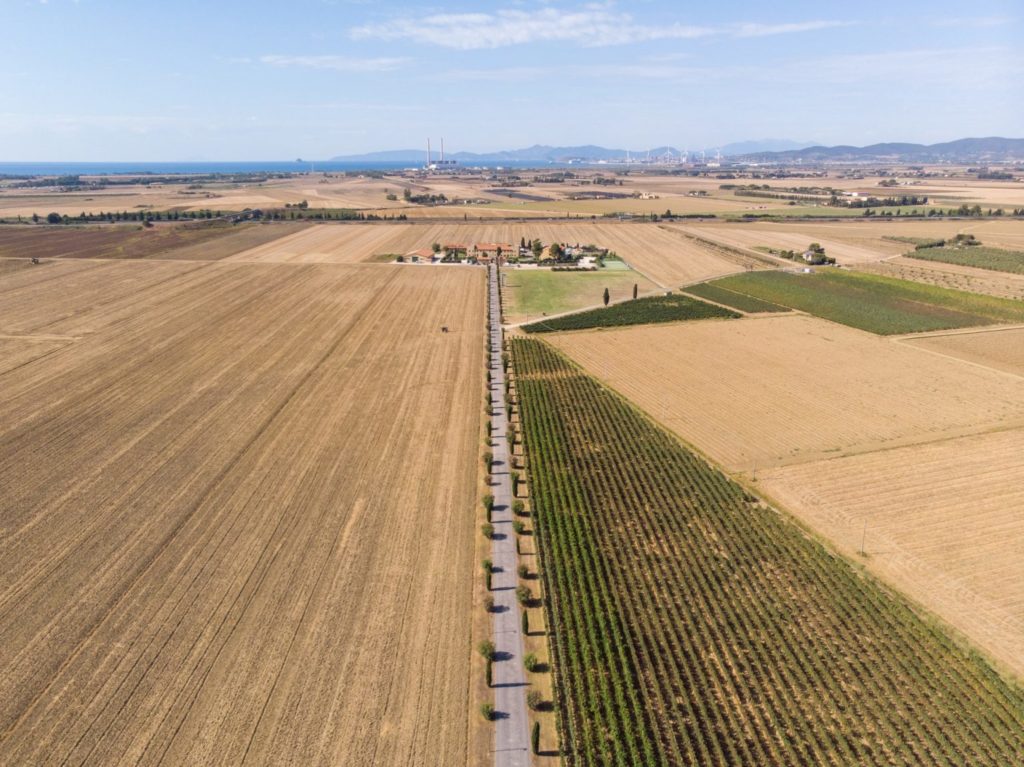Almost half of humanity (between 3.3 and 3.6 billion people) lives in high vulnerability to climate change, according to the scientific community represented in the Intergovernmental Panel on Climate Change (IPCC). In this context, the Mediterranean area is the most threatened in Europe, while globally, Central Africa, South East Asia and Central America are also very sensitive. The IPCC report released in February 2022 and approved by its 195 member governments is blunt: to avoid increasing loss of life, biodiversity and infrastructure, ambitious and accelerated actions are urgent.

The international team of experts includes Jofre Carnicer, researcher at CREAF and Professor of Ecology at the University of Barcelona, who warns that “the environmental cost of inaction is very high, and action is needed before the window of opportunity we have now, which is only 2 to 3 decades, gets closed”. In his opinion, profound and transformative changes are urgently needed at national and international levels, in industries and sectoral activities, and in people’s lifestyles. And especially in all economic activities that generate emissions. “If we do not drastically reduce emissions below 2°C in the next 2 decades, the costs of adapting to climate change will be much higher”, he assures.
Researcher Jofre Carnicer is an authoritative voice as an IPCC Lead Author on the European and Mediterranean chapters, who analyses climate change impacts on Mediterranean ecosystems, focusing on climate-change induced responses in forests, plant-animal interactions and key ecosystem services. He is the only expert from Catalonia and one of the few researchers in the whole of Spain to have taken part in the international Panel’s report.
Global needs versus pioneering actions
Despite steady progress in local experiences on how to reduce the negative impacts of climate change in different sectors, the IPCC’s report remarks there is still a gap between the global needs and the pioneering actions that are progressively being implemented. The impacts of climate change are greater among lower income populations, in certain vulnerable areas of the world, and are also modulated by age and gender. According to the document’s conclusions, the current economic development is unsustainable and it is essential to engage all social actors to drive transformative mitigation and adaptation actions towards a sustainable model, more resilient to climate impacts.
The group of scientists warns that the world is facing multiple climate risks over the next two decades, which in the Mediterranean have already resulted in a warming of 1.5°C (above the global average of 1.1°C). Human-induced climate change is causing dangerous and widespread disruption to nature and affecting the lives of billions of people around the world. People and ecosystems with the least capacity to cope are already the hardest hit. If emissions are not reduced in the coming decades and the warming level set in the Paris Agreement (1.5°C) is temporarily exceeded, serious impacts will occur, some of which will be irreversible.
Adaptation measures to maintain biodiversity and their services society absolutely depends on include ecosystem restoration, nature-based solutions and to increase land protection. Jofre Carnicer reminds that “the planet’s natural areas have to be protected more consistently because we are so dependent on ecosystem services to maintain climate security on the planet. Oceans and forests absorb 50% of our greenhouse gas emissions and contribute to regulating global temperature. The report documents that an increase in climate impacts can cause declines in the efficiency of global CO2 absorption by ecosystems and thus positively feedback warming”. To this end, the IPCC report advocates moving from 16% of the world’s protected areas, a figure agreed in the World Biodiversity Convention, to 30% or even 50% by 2030. “The solutions based on protecting or restoring nature must necessarily be accompanied first and foremost by drastic reductions in gas emissions in multiple sectors over the next two decades”, says Carnicer.

An asymmetric Mediterranean at risk
The Mediterranean is warming faster than most areas of the world: its temperature has already risen by 1.5°C, while the global average remains at around 1.1°C. Predictions point to a considerable increase in droughts: for every degree increase in temperature, we will see a 4% reduction in rainfall, so that reductions of between 5% and 20% are predicted, depending on our capacity to reduce emissions.
The use of water in agriculture should be a key point to adapt to this drought and rising temperatures. At the same time, other forms of agriculture that are more efficient and better at maintaining soil moisture, such as regenerative agriculture that maintains a more fertile soil rich in organic matter, should be promoted.
Moreover, vulnerability to climate change in the Mediterranean basin is highly asymmetric. The report reviews the Sustainable Development Goals in this area and shows that indicators are extremely different between the southern and northern shores. The southern shore has lower rates of poverty, food security, access to renewable energy, water, education and health. People in this area are even more exposed to the effects of climate change, as they have fewer resources to adapt to future impacts, for example. “A very clear example of the increased vulnerability to climate change on the southern shore of the Mediterranean is the rise in sea level in Egypt, a country of 103 million people. In the Nile Delta it is expected that more than 6.3 million people could be seriously affected if sea levels rise above 80 cm, a scenario envisaged with today’s greenhouse gas emission trends”.

Food security
In Europe, agriculture will be a major focus of climate change impacts and adaptations. Science already shows that European crop losses due to drought have tripled in the last 50 years. Worldwide, production declines of up to 5% have also been seen in the three main crops (maize, wheat and rice). Looking ahead, productivity reductions of up to 17% are expected in the Mediterranean region under worst-case scenarios. Moreover, it is estimated that around 10% of arable land will not be able to be used for agriculture due to climate change under high warming scenarios. In addition, farm workers could be subjected to 250 very hot days per year.
Although adaptation measures are already being taken in agriculture, such as changes in crop timing, shifting crop areas to higher elevations, or using species that are more resistant to salinity or water stress, the IPCC report documents that in high warming scenarios (>2°C) some adaptation measures may no longer be effective and may not be able to maintain current food production.
Climate-resilient development
The need for fair and inclusive governance schemes are also highlighted by the report, taking into account that adaptation measures are taken including all stakeholders, and facilitating co-creation of solutions at different levels.
The current human development is neither sustainable nor resilient to climate change. This is why the Panel’s document highlights the need for transformative actions that both drastically mitigate the emissions and effects of climate change, and enable adaptation of land and people, with a particular emphasis on inclusive and equitable choices. On the other hand, inclusive governance schemes are also needed, thus for example, local and indigenous population’s experience, as well as the scientific knowledge. International cooperation is also key among governments and communities, socially disadvantaged groups, civil society, educational bodies, scientific and other institutions, the media, and investors and businesses.